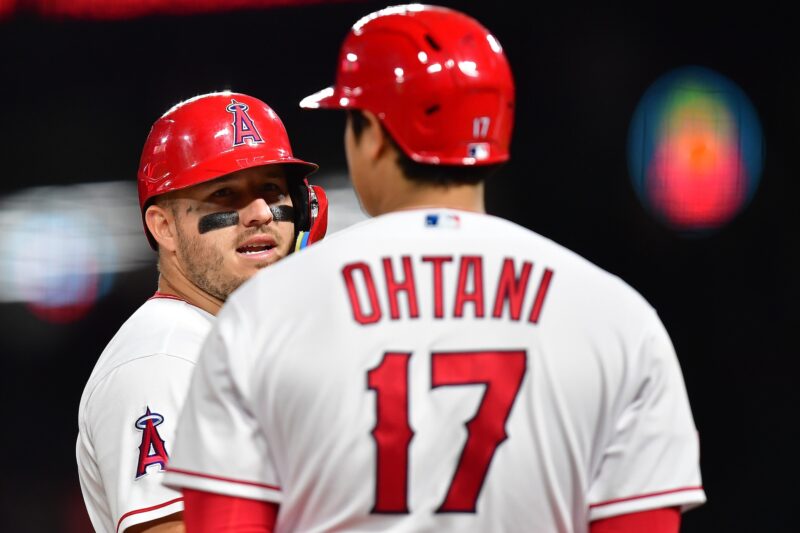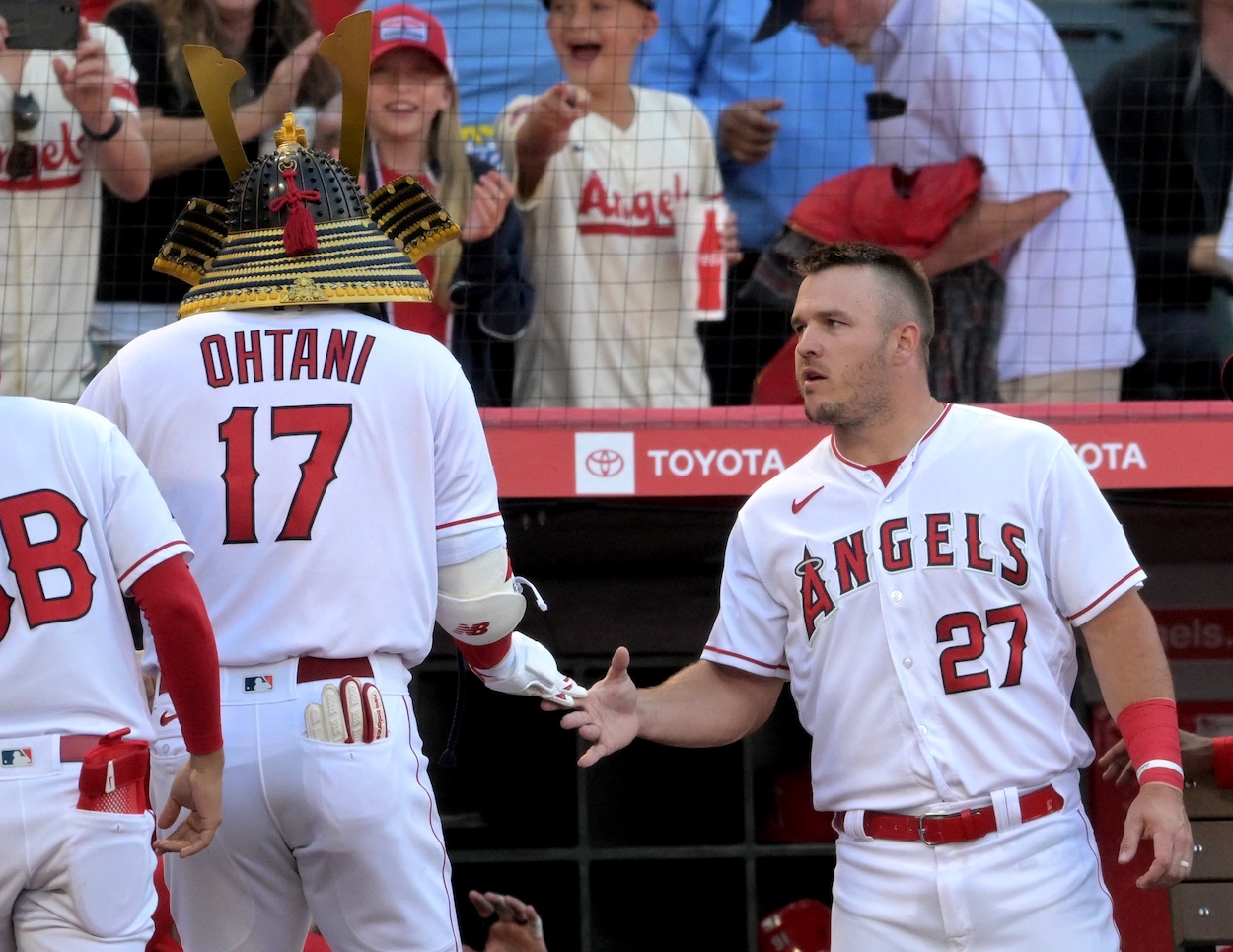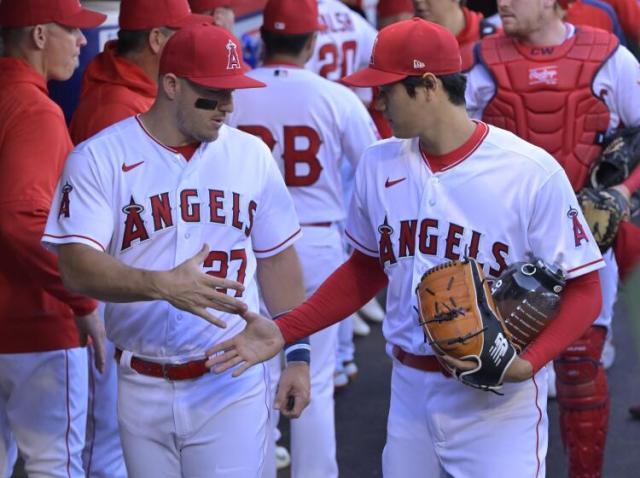In addition to ending the regular season, Sunday’s 7-3 victory over the Oakland Athletics by the Los Angeles Angels may mark Shohei Ohtani’s last game with the team.

Usually, a franchise can be built on a single generational talent who produces spectacular results within a 10-year span. Mike Trout was that player. At the age of 19, it took him just two years to make it to the big leagues when the Angels selected him as the 25th overall choice in the first round.
Trout saw a brief taste of the top level of baseball during his 40-game ascent to the Major Leagues in the 2011 season. It took him just twenty games in Triple-A the next season to demonstrate that he was capable of keeping up with the game’s tempo.

Since then, he has established himself as a key member of the team and the model big-league player in terms of skill and drive. Despite his numerous accolades, including nine Silver Slugger Awards, three American League MVPs, and eleven All-Star choices, a string of injuries in recent years has limited his playing time.
Building up the farm system would have given the franchise a way to fill up the roster with young, controllable players, but the front office has failed horribly in doing so.
The signing of Ohtani before the 2018 season maintained the Angels’ good fortune mixed with questionable business decisions. Another blue-chip addition, the two-way star cost pennies on the dollar for the amount of work he produced.
On his future with the Angels, the three-time All-Star has been evasive, even if he is on his way to win his second MVP. He has made it plain that winning is his main priority, and even Trout has expressed concern about Ohtani’s potential next move.
Since Ohtani can pitch and hit at a high level, there is a lot of speculation about his next deal, and it should be worth every penny. Although Ohtani might not want to be a member of a team that is among the worst run in the league, Arte Moreno has an incentive to go with the biggest bidders.
General manager Perry Minasian surprised everyone by leading the most aggressive team at this year’s trade deadline. It was all for nothing when the slim upper-tier free agents were traded for Randal Grichuk, C.J. Cron, Lucas Giolito, and others.
The Angels finished the season with a 28-43 record, a bottom-of-the-barrel farm system, and even less hope of winning it back in the upcoming seasons. The squad is in a tough situation and faces the prospect of losing one of their star players for nothing after Minasian set off a chain reaction.
The Angels’ final chance to qualify for the postseason with Ohtani was to go all in, despite speculation from fans and MLB insiders that he would be moving at the Trade Deadline.
It’s always easier to look back than to look forward, which is why it’s fair to wonder if trading for Trout should even be a topic of discussion. The Angels must take everything into account because there is a strong chance that Ohtani may leave for very apparent reasons.
The squad does have some youthful Major League talent, but they were forced to step up to the regular roster and start making significant contributions. However, Ohtani and Trout will draw in more fans than Zach Neto, Logan O’Hoppe, Chase Silseth, Nolan Schanuel, and other rookie pieces alone.
However, dealing Ohtani should have been a realistic possibility for the team’s future success; as it stands, the most they’ll get in exchange for his qualifying offer is a compensation selection in the 2024 MLB Draft.
For marketing purposes alone, Trout would be on a different team that finishes worst in the standings in the future. Because the Angels lack a reliable winning formula without the “fan lense,” and the window of opportunity for their two blue-chip players is almost closed.
Why would Ohtani choose to resign here, considering all the bad aspects of the Angels’ operations that have already been discussed? Although it’s not an insurmountable feat, claiming they have an advantage just because it’s where he started his MLB career would be a weak argument.
Do the Angels need to deal Trout? Presumably. Would Trout be traded by the Angels? Maybe, if the team that receives him determines that it would be prudent to take a chance on a 32-year-old who would earn a base salary of $35.45 million every season until he is 38.
But will they, even if they can and should? Trading Trout would mean making a radical change to the team, not only with their leader on the field but also with their only significant marketable player.
To entice their trade partner, the Angels’ willingness to swallow a large sum of money would determine Trout’s return. At this year’s trade deadline, the Mets utilized that to acquire Max Scherzer and Justin Verlander, but their contracts weren’t quite as good as this.
Although he hasn’t participated in more than 140 games since 2016, he performs as expected when he is on the field. As the game has changed, Trout has persisted in changing, and in recent years, he has become a greater threat to hit home runs.
It would be irresponsible to suggest that the Angels would be better off trading him away as well, as they would be without any star talent and the reward for him would be insignificant to an impatient owner. To be wise, though, would be to shop him around and see if any teams might offer them a prospect back in addition to cash.
However, since Ohtani most likely played his final game in an Angels uniform, supporters might lose faith in the team’s future if they watch them trade the lone remaining franchise star. Moreno could have been more astute; he might have sold the team, ought to have sold the team, or even taken a more detached role as the owner.
Due to Trout’s participation in just one postseason series, MLB fans who aren’t Angels fans have long desired a trade. However, when he put pen to paper and signed the 12-year, $426,500,000 contract, he knew that the front office was going to be a volatile participant at the table.
Teams are becoming more cautious about who they give their superstar money to because, as the Mets and San Diego Padres have shown, things can go wrong very quickly. One of two things needs to happen now: either they find Trout a suitor, or they get over it and rebuild the team from the ground up.
